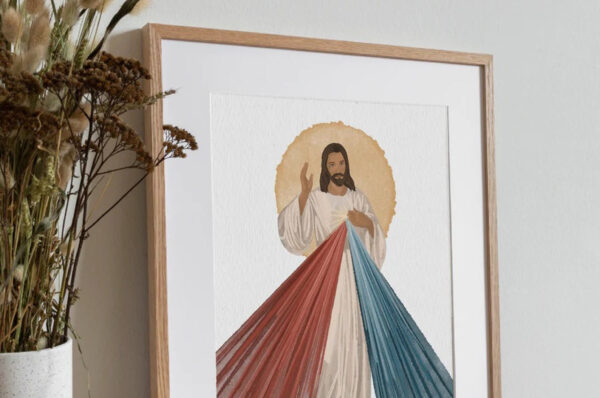During my college years, the mystery of the Incarnation ceased to be just a historical event and instead became a personal encounter with Jesus Christ. I would have never dreamed this relationship would lead me to the convent, but — surprise! — it did. While it took time to let go of what I thought I wanted and for the Lord to uncover a deeper desire he had already placed in me — a desire he promised to fulfill with himself — I started to see the Incarnation as his desire to be with me. He was the lover stooping down to be with his beloved and to redeem his bride. That little babe in Bethlehem revealed to me the intimacy of God through his poverty, presence and pursuit.
God reveals his intimacy through poverty by first impoverishing himself. He was rich but became poor. He was God but became man. He was complete in himself but became dependent as he took on flesh and even suffered all the consequences of our sin. In his poverty, he became what he was not — human — just to be with us in our dependency and to show us how to be who we are as humans.
It is when we try to run away from our poverty, our dependency, that we create space between us and God. Instead of making peace with our weaknesses and keeping our arms outstretched to receive his grace and mercy, we cross our arms and keep our eyes on ourselves, trying to figure it all out without him and grasping at what we think we need. When we ignore or deny the reality of our poverty, we deny our intimate reality as beloved children of God the Father. The Incarnation shows us that it is our poverty that will restore our relationship with our Father, for it opens us up to receive God. Since God made himself weak, dependent and vulnerable to me, I can now come to him as I am. As a bride of Christ, I do not have to hide my weakness, my vulnerabilities and my need for a savior. By embracing my own poverty, I created a welcoming and intimate space to meet my beloved.
God also reveals his intimacy through presence. I remember a retreat where I was asked to pray through my own salvation history. I saw that the Lord had been present through all the big moments of my life and how beautifully he had brought everything together. However, it was hard to go through some memories of painful wounds. I remember asking Jesus to reveal to me where he was when certain sufferings happened in my past. After a few times of praying with this, I had a “God’s eye view” of the situation and I felt this overwhelming love for that girl that was hurt. He showed me that he hurt when I hurt. He was there and never left. The sting of pain I used to feel about the memory slowly dissipated as a new light came through.
As Christians, we often get asked what is the answer to suffering in our lives. God did not answer it through an explanation but a deed. He did not give a word but his Word and entered our suffering. He gave his presence, which brings his light to the darkness of suffering. Seeing his faithfulness through our past, even in the hard times, helps us have faith in the present moment or present trial. His presence in every moment of our lives reveals how intimately he understands and knows us.
Throughout my first year in the convent, I spent time in prayer asking the Lord what name he wanted to give me. Over and over in Scripture I was drawn to his constant reminders: “Fear not, for I am with you” (Is 43:5). Since he is “Emmanuel,” God-with-us, there is never a moment in our lives when he is not with us, and this reveals how intimately he knows us. What bride doubts herself when she knows she is fully understood by her beloved at all times?
God reveals his intimacy through his constant pursuit of us. St. Bonaventure teaches that even had we not sinned, God would have come down because he always wanted to dwell so intimately with us. He is a lover doggedly pursuing his beloved, and nothing will stop him, not even death.
My religious order’s charism is perpetual adoration. Adoration literally means “mouth to mouth.” It reminds me of a passage from the Song of Songs: “Let him kiss me with the kisses of his mouth” (1:2). This kiss, this closeness is where the Lord desires to be. He does not want any space in between us. The person of Jesus is himself a kiss. In him, there is no space between heaven and earth, between God and man.
Jesus takes this intimacy a step farther, even uncomfortably further, and lets us receive his body, blood, soul and divinity in the Eucharist. As a religious sister, I am a visible sign of the reality we will all be living in heaven, a spousal union with our beloved. As I walk down the aisle to receive Jesus in Communion, I know that his eyes are always on me, loving me and delighting in me: “For as a young man marries a virgin, your Builder shall marry you; And as a bridegroom rejoices in his bride so shall your God rejoice in you” (Is 62:5).
His pursual is intimate, and he speaks uniquely to our heart. Even when we turn away through our sin, he does not take his gaze off us nor lessen his delight in us. Even when we are unfaithful, he is faithful. The Incarnation is a way to make his heart known to you as he did for me.




